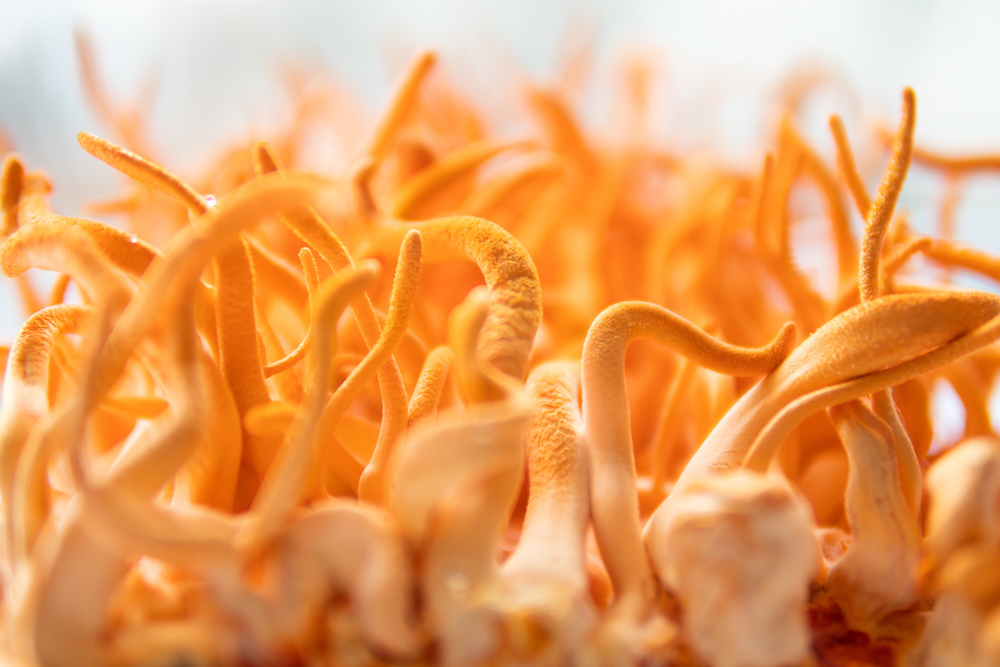Avoiding Dietary Pitfalls With Thyroid Conditions
If you suffer from hypothyroidism or Hashimoto’s, there is a good chance you have looked into low-carb or ketogenic diets in an attempt to shed the excess weight that typically goes hand in hand with the condition. However, research has found that this may be counterproductive in the long run and even slow your thyroid further, creating additional weight gain. If this sounds like you, take heart! Here, we will explore not only the pitfalls of low-carb diets but also examine the best diet for hypothyroidism that will help encourage a healthy weight, better energy, and clarity while also supporting overall thyroid health.
What is hypothyroidism?
Increasingly common as you age, hypothyroidism is a condition where the thyroid gland in the neck no longer produces enough thyroid hormone. This often leads to weight gain, fatigue, brain fog, hair loss, high cholesterol, heart disease, depression, irregular menstrual cycles, muscle aches, and more. There are many reasons why it can develop, including chronic stress, exposure to radiation through X-rays, infections in the thyroid gland (thyroiditis), medications such as lithium, hormonal shifts during pregnancy or menopause, a tumor on the pituitary gland, or not enough iodine. It can also be caused by autoimmunity, where the immune system attacks the gland, as in the case of Hashimoto’s.
Risk factors include having a family history of thyroid disease, being a woman, autoimmune diseases such as type 1 diabetes or celiac disease, radiation to the upper chest or neck, treatment for hyperthyroidism, or a past thyroid surgery. Diagnosis typically involves a blood test measuring the level of thyroid-stimulating hormone (TSH).
Conventional treatment usually involves taking a synthetic thyroid hormone medication such as levothyroxine. Since there is no cure for hypothyroidism, taking thyroid medication is lifelong. This also means that your diet will not make your thyroid function properly again. However, some diets can aggravate symptoms while others offer relief. Let’s take a look at both.
Low-Carb Ketogenic
Low-carb, keto, and carnivore tend to be attractive diets for those with hypothyroidism. Why? Because they are known to help you shed excess weight. However, research has shown that not eating enough carbohydrates may lead to a reduction in thyroid hormone conversion, which is essential for proper function.
A small crossover study involving 11 healthy participants compared the impact of a ketogenic diet to a high-carbohydrate, low-fat diet on resting metabolism and thyroid function. What they found was an increase in free T4 hormone and significantly lower plasma T3 levels — which is a classic pattern of decreased T4 to T3 conversion in hypothyroidism.1,3 This is the same effect seen in starvation and chronically ill patients, as the body slows metabolism and decreases thyroid function to focus on critical bodily processes.2 Likewise, research published in the Journal of Pediatrics Endocrinology Metabolism established a similar outcome of a low-carb, ketogenic diet on thyroid hormonal status.4

Mediterranean & Plant-Based
On the flip side, an anti-inflammatory diet can have a positive effect on hypothyroidism, especially if there is an autoimmune component, such as with Hashimoto’s. One popular example is the Mediterranean diet that focuses on fruits, vegetables, whole grains, legumes, healthy fats like olive oil, fish, and occasional meat.5 Due to the nutrient density of the diet, it also supports thyroid health by providing plenty of vitamins A, B12, and D3, along with minerals iron, selenium, and zinc. Another option is a whole-food, plant-based diet — such as green Mediterranean. A 2020 review found that people who follow plant-based diets have less inflammation and can maintain a healthy weight more easily.6 What’s more, whole-food, plant-based diets can help to lower cholesterol levels and protect heart health — two important considerations when addressing thyroid conditions.7

Herbal Allies for Inflammation & Heart Health
Medicinal herbs are also an excellent option for managing inflammation, protecting against high cholesterol, and encouraging cardiovascular health. For these purposes, I turn to our Mushroom FOURtress Bundle and Heart Health Blend. Here are the plant-powered benefits of each:
Mushroom FOURtress
Rooted in centuries of Traditional Chinese Medicine and backed by modern research, our Mushroom FOURtress Bundle brings together four powerful medicinal mushrooms — Cordyceps, Lion’s Mane, Reishi, and Turkey Tail. Each mushroom offers its own unique health benefits, from boosting energy and sharpening focus to calming stress and cooling chronic inflammation. Together, they form a natural fortress for your body and brain.
- Cordyceps boosts energy and endurance while supporting respiratory and brain health.
- Lion’s Mane promotes cognitive clarity, nerve regeneration, and helps ease stress-related fatigue.
- Reishi is a calming adaptogen that supports restful sleep and stress resilience.
- Turkey Tail is a powerful anti-inflammatory that also supports gut and immune health—key components of overall energy and brain function.
These dual-extracted tinctures harness the full power of fruiting body mushrooms to help you feel your best—mentally and physically.
Heart Health Blend
To encourage cardiovascular and metabolic health, our convenient Heart Health Blend helps to regulate blood glucose, lower LDL cholesterol, reduce inflammation, and maintain healthy blood pressure levels. It contains potent extracts of Hawthorn, Tulsi (Holy Basil), Fenugreek, and Bilberry for blood sugar and blood pressure regulation, improved circulation, and overall heart health. This powerful blend is also outstanding for supporting vision and the eyes.
Discover the transformative power of our Mushroom FOURtress and Heart Health Blend, each formulated to address the symptoms of inflammation, fatigue, and brain fog, while also supporting overall cardiovascular health. Take your health to the next level by visiting my apothecary today!
Nicole Apelian
Nicole’s Apothecary Products in this Post
References
- Iacovides S, Maloney SK, Bhana S, Angamia Z, Meiring RM. Could the ketogenic diet induce a shift in thyroid function and support a metabolic advantage in healthy participants? A pilot randomized-controlled-crossover trial. PLoS One. 2022 Jun 3;17(6):e0269440. Doi: 10.1371/journal.pone.0269440.
- Erratum in: PLoS One. 2023 Nov 27;18(11):e0295112. doi: 10.1371/journal.pone.0295112. PMID: 35658056; PMCID: PMC9165850.
- Douyon, L., & Schteingart, D. E. (2002). Effect of obesity and starvation on thyroid hormone, growth hormone, and cortisol secretion. Endocrinology and metabolism clinics of North America, 31(1), 173–189. https://doi.org/10.1016/s0889-8529(01)00023-8
- “How Many Carbs Should You Eat With Hypothyroidism?” Dr. Westin Childs, April 6, 2025. https://www.restartmed.com/how-many-carbs-should-you-eat-with-hypothyroidism/
- Kose, E., Guzel, O., Demir, K., & Arslan, N. (2017). Changes of thyroid hormonal status in patients receiving ketogenic diet due to intractable epilepsy. Journal of pediatric endocrinology & metabolism : JPEM, 30(4), 411–416. https://doi.org/10.1515/jpem-2016-0281
- Duntas L. H. (2023). Nutrition and thyroid disease. Current opinion in endocrinology, diabetes, and obesity, 30(6), 324–329. https://doi.org/10.1097/MED.0000000000000831
- “Preventing Thyroid Diseases with a Plant-Based Diet, While Ensuring Adequate Iodine Status” by Stewart Rose and Amanda Strombom, Global Journal of Otolaryngology, February 14, 2020. https://juniperpublishers.com/gjo/pdf/GJO.MS.ID.556069.pdf








